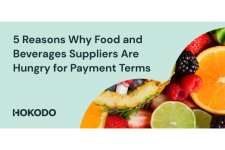Reports from IFT17
Firms encouraged to ‘invest in healthier products’

Richard Black told the seminar “The food industry is a conservative business: it is inherently risk-averse.
“Investments predicated on a health win represent the highest risk from an investment point of view.”
That meant manufacturers needed encouragement to invest in healthier products to counter their natural tendency to avoid risk, said Black.
He based his views on more than 25 years’ experience as a nutritionist working in the marketing departments of large firms. Most recently, he worked with PepsiCo as the vice president of Global Research and Development Nutrition Sciences.
Chaired by The Washington Post columnist Tamar Haspel, the seminar recognised the achievements of the processed foods industry. Haspel described the industry’s success at reducing sodium in foods and virtually eliminating trans fats as “sort of heroic”.
‘Industry has been remarkably successful’
Black agreed: “The food industry has been remarkably successful in getting trans fats out of food.”
But Haspel and Canadian obesity expert and doctor Yoni Freedhoff linked soaring obesity rates to the prevalence of processed foods.
Freedhoff told the seminar: “The issue I see as the most problematic is the marketing and the sale and commercialisation of food. Marketing budgets have gone up 100-fold in 50 years.”
At the heart of the problem was the ubiquity of low-priced “ultra processed food”, he added: “We are failing a huge swath of the population where choice [about food] is a luxury they don’t understand.”
Describing the trend towards clean-label as “a marketing vehicle”, Freedhoff said: “We have created a playing field that is heavily skewed towards food manufacturers.”
‘Playing field heavily skewed to food manufacturers’
There are plenty of yogurts that are just fermented ice cream, he said. “These are not health foods. But because they’re called yogurt, the word alone confers health benefits.”
Black said many actions were needed to remedy obesity; not just taxes. “We can’t expect to put taxes on soda and expect that to shift the needle on obesity. But it is one piece, and there are many other pieces that need to happen simultaneously.”
Cargill research and development vice-president Chris Mallett urged the audience not to demonise food ingredients. There was no scientific evidence that any one ingredient was responsible for the obesity epidemic, he said.
Non-food factors, such as genetic inheritance could play a key role. Until we understand more about obesity, it was wrong to blame solely food or food ingredients for obesity, he claimed.
“Our position is not to demonise an ingredient,” said Mallett. “Sometimes, consumers want to have Truvia [a non-nutritive stevia-based sweetener developed by Cargill]. Sometimes they want to have sugar. It’s for them to make that choice.” said Mallett.
Cargill’s aim was to “help the branded food companies meet the expectations of consumers”, he said.
The seminar – ‘Processed Food: The Good, the Bad, and the Science’ – took place on Monday (June 26) at the IFT17 event in Las Vegas, Nevada.


















